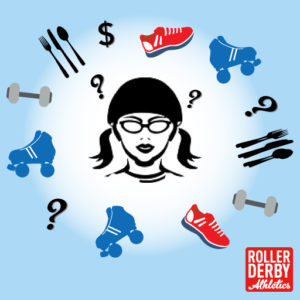
What if I told you I thought New Year’s resolutions were kind of dumb?
TL;DR version of what follows: “Resolutions” are poorly designed. Our lives are cyclical, and attention spans short. To be more successful with self-improvement, we should use short Focus Cycles, and forget about arbitrary dates!
Here comes the long version…
Basically if my January blog posts were a person, they’d be a crotchety old dude yelling “get off my lawn, you kids!” Indeed, in early 2014 I told you that goals might be bunk, but systems are for winners. And in 2015 I told you about “pro-scuses” and other systems I thought you’d benefit from putting in place. In 2016 I let you in on a little secret of continuous micro-improvement called The 1% Secret and how it can have a dramatic impact on anything in your life you choose to apply it to.
But it’s already mid-January and I’m pretty late on getting that New Years-y post out. I was busy launching Derby Fuel, our new eat-like-an-athlete program developed by my nutrition coach Lilith NoFair. And getting folks registered and ready to rock with the January session of Pump Up Your Jam training! And on-boarding a bunch of new MVP Members who are all stoked to have a kick-ass season ahead…. And, and, and.
But am I “behind,” or failing to capitalize on New Years’ good intentions and fresh starts? Nope!
The first of January is an arbitrary milestone, with limited actual effect on any sphere of my life (that’s just me – it might work great for you). But the marketers tell me it’s a time when I need to be starting fresh, or creating new resolutions to stick to for the next twelve months.
But here’s the thing. Just about everything in our lives runs on much shorter cycles than one. whole. year.
There are the seasons, for example. A tidy three months each, depending on what part of the world you live in. School terms or semesters tend to slot in to the seasons as well. There are derby seasons too – fresh meat intake, home team season, travel team season. And if you’re lucky and smart, there might even be an off-season in there too!
So this year’s take on why New Year’s Resolutions are dumb, is this: they’re badly designed. Let me explain.
Consider this: we have short attention spans, and it’s difficult to remain focussed on a personal challenge for more than six to eight weeks at a time.
When it comes to health and fitness, or creating new healthy habits, we’re actually suited to working on self-improvement in shorter bursts. Our bodies, and even our brains, need a break! And for most physical pursuits, two or three months is about the maximum window where we can focus and improve in one area, before we start to see declines in others.
This concept is not new to athletes and trainers. Periodization is “progressive cycling of various aspects of a training program during a specific period,” designed so that the athlete is at peak performance during the most critical part of their competitive season.
Basically the year of training for most team sports is broken out into off-season, pre-season, competitive season, and recovery/down-time. And top athletes train very differently in each of those periods, focussing on different training outcomes for each.
A very rough breakdown of the periodization for a sport like roller derby is:
- Off-season: strength building
- Pre-season: power and agility, cardio
- Competitive season: maintenance
- Recovery period: rehab, recuperate, light activities.
These periods can be further broken down into shorter sub-cycles if they are longer than 12 weeks. And each period will usually have a week of active rest at the end.
(Keep in mind, the above is a plan for a highly competitive athlete. Don’t feel like I’m telling you how to live your life!)
If I could design a series of goals, systems, or resolutions (whatever you like to call them) for everyone reading this, I’d use a periodization approach for everything, not just the fitness-related stuff. And I’d call it Focus Cycling.
Here’s how you can design Focus Cycles for yourself:
1. Identify and write down two or three focus areas you want to improve in, or SMART goals you’ve got for the coming months. Those areas might include two or more of fitness, nutrition, mental game, life-work-derby balance, social, family, financial, etc. They don’t have to be the only goals you’re going to approach for the entire year!
2. Prioritize and combine. Can you reasonably work on two priorities during the same cycle? For example, overhauling your family budget at the same time as you start a new healthy eating plan might work great; you can save money by shopping smart and eating home-made more often. But starting a time-consuming fitness program at the same time as a new nutrition program might be overwhelming. Too many new behaviours happening at the same time could make success harder to achieve. Figure out which focuses (foci?) overlap well.
3. Design the SYSTEMS you need to put in place to move yourself closer to your ideal state in those areas. Check out my “Systems are for Winners” post for more ideas.
4. Pick dates for cycles that are meaningful. Do you take a 2-week vacation in March? Don’t start a new cycle one week before that. Are you more inclined to do cardio training in the summer when you can exercise outdoors? Then plan your fitness cycles around your real life, and maybe make winter a strength training focus cycle in the gym.
5. Periodize. Based on the rough seasons of your life that you’ve established, map out some possible focus cycles that are realistic and achievable. Plan to focus on only one or two elements that you want to improve in each cycle.
Finally, if you’re data-driven, you’ll want to establish a baseline (try the Roller Derby Standardized Fitness Test, or elements of it, for your fitness baseline!) and then measure the change in your results at the end of each cycle.
If you’re looking for some help on how to set up the actual systems to improve your derby fitness, or a specific on-track skill, post in the comments below (or email me) and I’ll try to give you more detailed ideas.
If improved energy for athletic performance (or just saving money on your grocery and restaurant budget) is on your hit list for your first focus cycle, then check out our new Derby Fuel program for a slam dunk, done-for-you approach.
If your lowest-hanging fruit right now lies in improving your mental state at practice or in a bout, check out the Focus Funnel article by Jess Bandit, and/or consider a Membership at RDA where you’ll get Jess’ professional sport psych coaching every other week.
So what do my upcoming focus cycles look like? Here’s a sneak peek:
Currently: Since I’m temporarily housed and living out of a suitcase until early February, I’m not starting anything major or new. I’m finishing up tasks and short side-projects, and taking time to plan for the next cycle. You could say I’m in the equivalent to the Recovery period in sports training periodization!
I’m maintaining fitness as I continue to do my #kneehab work, and just trying to stay consistent with those PT exercises. That fitness cycle happens to be a longer one, just because of the nature of the ACL recovery process.
Next cycle: One mission I have for RDA is to produce more short videos. So that’s on my first cycle, and I’ll be working in the meantime to set up some better systems on the tech side to allow that to happen.
Once I have my own kitchen again, I’m going to follow the Derby Fuel system to get back on track with grocery shopping, food prep, and eating well. Luckily all those systems are already delivered in the program, so I don’t have much planning to do!
Question:
So tell me – what is your next Focus Cycle going to look like? Let me know in the comments, or ask for advice on how to set up your systems for success!

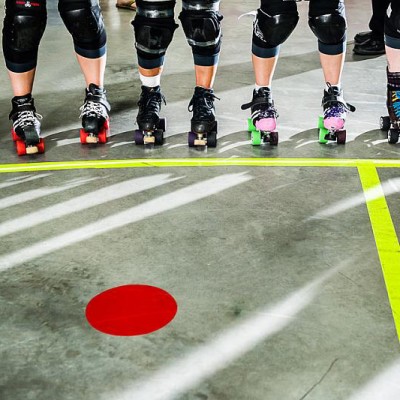 Fresh Meat – You Got This!
Fresh Meat – You Got This! 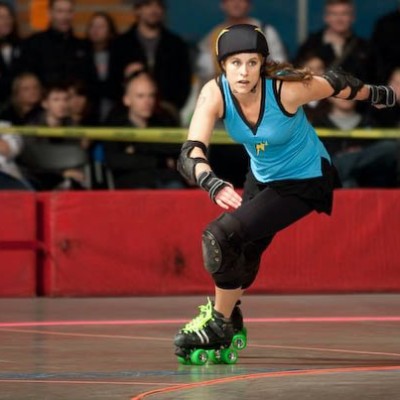 How to Improve at Derby’s 27 Laps Test
How to Improve at Derby’s 27 Laps Test 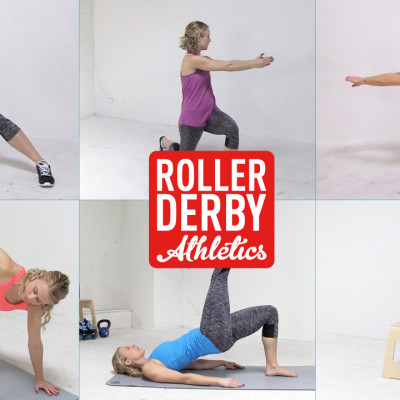 The Top Ten Exercises for Roller Derby Athletes
The Top Ten Exercises for Roller Derby Athletes 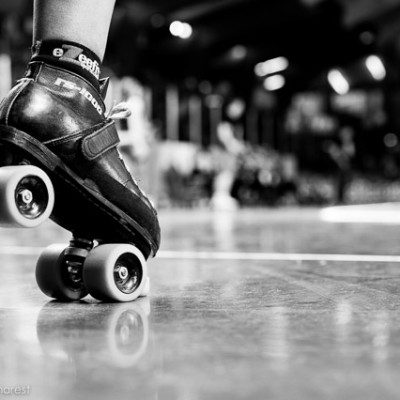 Go From Benchwarmer to MVP with the 1% Secret
Go From Benchwarmer to MVP with the 1% Secret 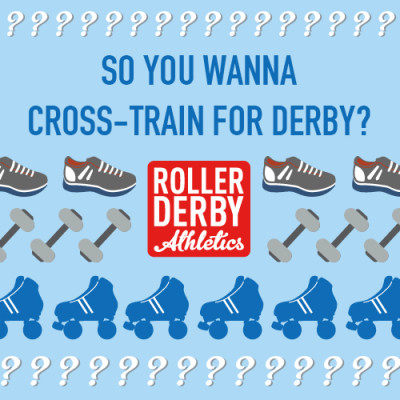 Cross-Training for Roller Derby: A Primer
Cross-Training for Roller Derby: A Primer
Currently: having a damned good sort out of my flat so I’ve got room to exercise effectively without having to move furniture everytime I want to exercise. Also, start walking around the park near my workplace at lunchtimes at least a couple of times a week rather than slouching at my desk reading a book.
Next: Soon as I’ve sorted out the exercise area in my flat, work through the Basics Builder Programme.
sounds like a great start, Esme!